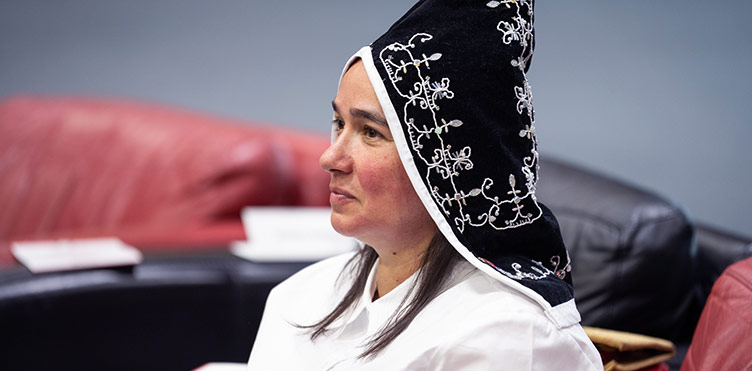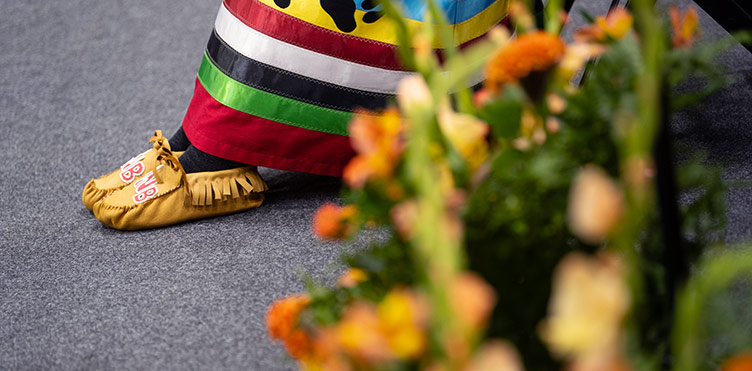Piluwitahasuwin

Office of the Associate Vice-President Indigenous Engagement
The University of New Brunswick recognizes that the unresolved relationship between Indigenous and non-Indigenous people limits us from reaching our full potential as a society.
As leaders, UNB is in a privileged position to engage in meaningful truth and reconciliation with Indigenous peoples. This must occur through relationships with Indigenous peoples.
The Piluwitahasuwin, or the Associate Vice‐President Indigenous Engagement (AVP), serves as a vital link between the university and Wabanaki and Indigenous communities.
Mandate
Piluwitahasuwin is a Wolastoqey word gifted by Elder Opolahsomuwehs (Imelda Perley) meaning “one who promotes change in a good way toward truth.” It shares its roots with the word piluwitahasuwawsuwakon, which means “allowing your thinking to change so that action will follow in a good way toward truth.”
The role of the AVP is to develop and foster positive internal and external relations between the broader university community as well as with the Indigenous community, territory and its stakeholders.

Priorities
As a bi-campus position, the AVP will play a key role in propelling the initiatives outlined in the Truth and Reconciliation (TRC) Strategic Action Plan forward.
This plan has been described as a Sacred Bundle, a path with responsibilities, obligations and guidance for action. The AVP will walk that path in partnership with the Indigenous Advisory Council, stakeholders, faculty and staff to create a safe Indigenous academic institution for Indigenous peoples.
In collaboration with these group, the AVP will work toward:
- Creating physical space at UNB that recognizes the traditional Wolastoqey territory
- Expanding Indigenous content in curriculum and research activities
- Recruiting Indigenous staff, faculty and students
- Accessing and removing barriers for prospective students from First Nations communities
- Improving upon how best to advise Indigenous students
- Ensuring that experiential education is accessible and promoted to Indigenous students
- Building an emerging leaders program for young and potential leaders from First Nations communities
- Expanding the Mi’kmaq-Wolastoqey Centre (MWC)
